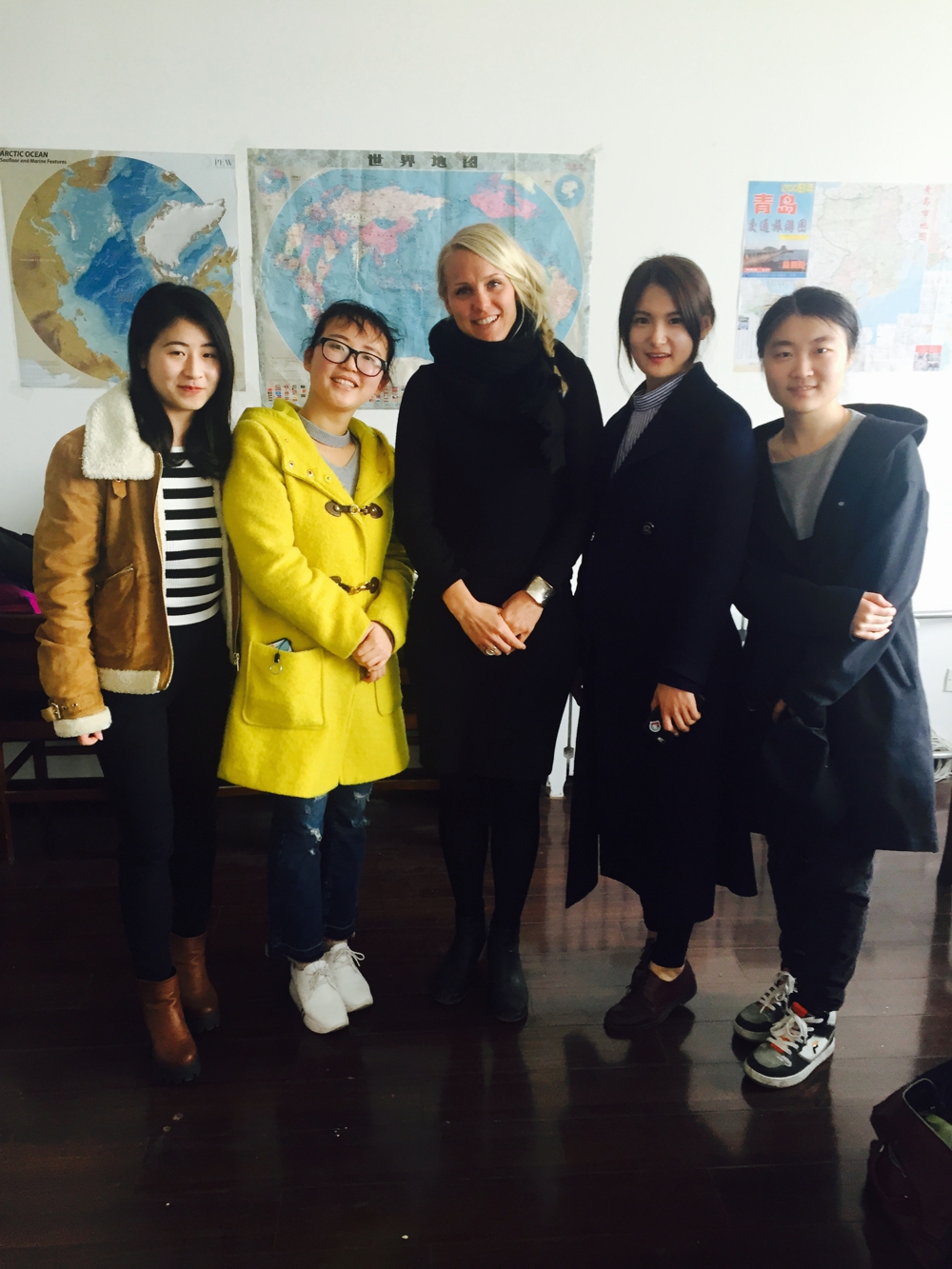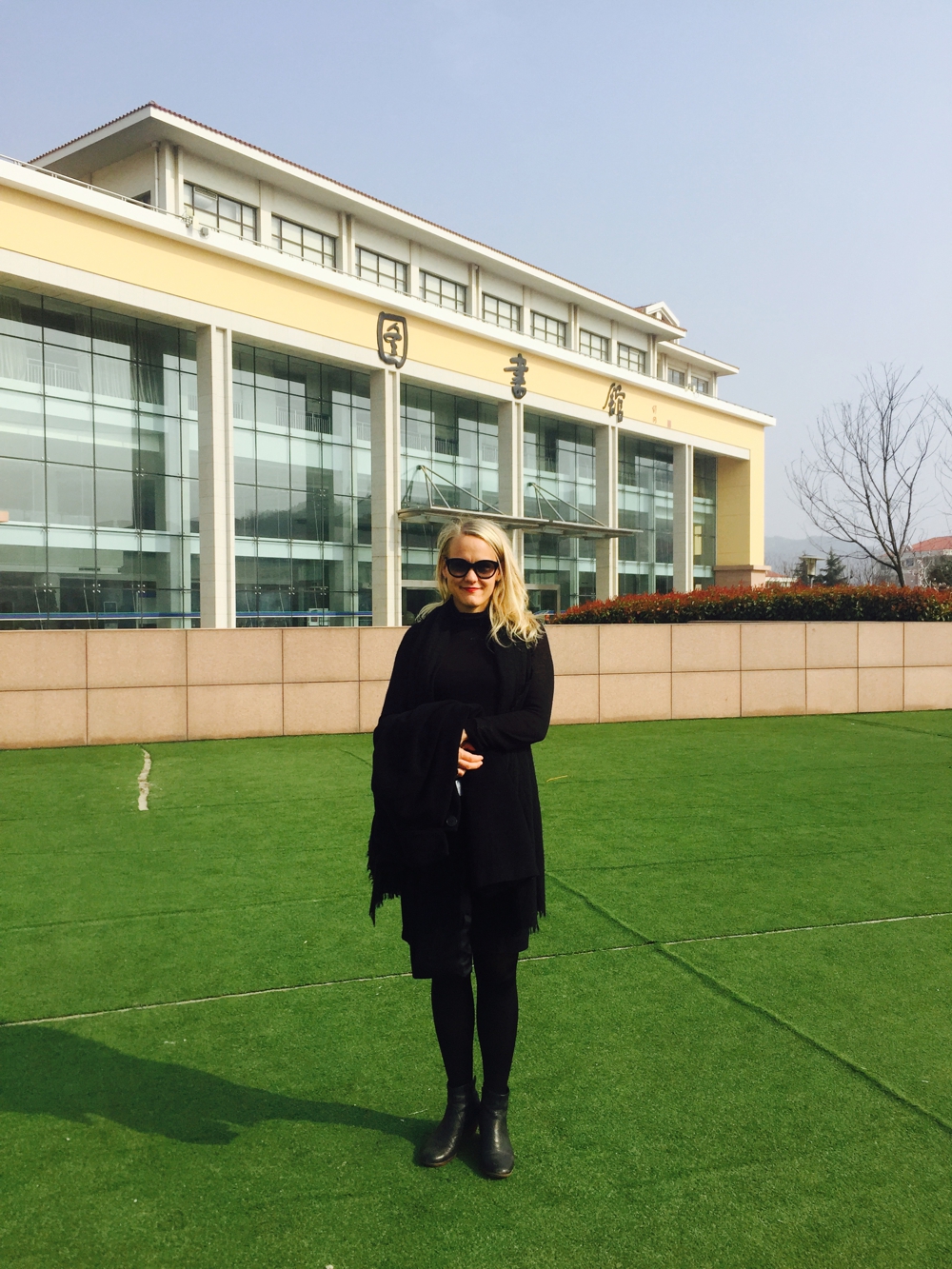Liisa Kauppila
PhD Candidate, University of Turku, Finland
Visiting at: China Ocean University
Period: 1 month
Research Theme: Collaboration of Northeast Asian Stakeholders on the Arctic
Dr. Liisa Kauppila, PhD Candidate at University of Turku, Finland succeeded in applying for a one month Fellowship at China Ocean University in Qingdao from March to April in 2017. The excerpt below in the CNARC fellowship report of Dr. Kauppila describes her academic activities and basic research findings during her visit in China.
CNARC Fellowship Research Report
The main research activities of the CNARC Fellowship stay can be listed as follows: library work, interaction with local researchers and students and the thesis writing.
1. Library work
During my stay, I devoted loads of time to analyzing Arctic-related Chinese language academic journal articles at the library of China Ocean University. I was most interested in analyzing the academic discourse/ intellectual debate on 1) China-South Korea-Japan collaboration in Arctic issues, 2) Chinese views on Arctic governance, 3) China’s Arctic identity and 4) Chinese notions of great power responsibility with regard to climate change. I gathered a rather sizable collection of fruitful articles, which I have already utilized as a primary source in my thesis writing process.
Spending a lot of time by analyzing Chinese language journal texts also confirmed my previous thoughts on the fundamental differences of western and Chinese academic discourse. To me, Chinese texts are more policy-oriented and they always include recommendations on what China should do in the future. In the west, we do this in policy papers but less so in basic academic articles. This finding also made me somewhat rethink of the role of academics in Chinese society.
2. Interaction with local researchers and students at China Ocean University
I gained plenty of useful information, especially on China’s role in remaking the Arctic as a political region when talking with researchers. The most illuminating talks were related to Sino-Russian relations, China’s stance on High Seas fisheries, Chinese views on international relations and great power responsibility as well as the role of science and technology in China’s Arctic entrance and the country’s rise in general. I was intrigued by the different research findings that the Western and Chinese biologists are demonstrating in the talks dealing with High Seas fisheries. Also I was once again reminded of the fact that the Arctic, in many contexts, continues to be a relatively unimportant issue for the Chinese central government.
We also frequently exchanged views on recent Arctic-related media texts. These analytical talks of Chinese media writing revealed fundamental differences in the worldview of scholars/students who come from a non-Arctic country that is becoming a great power (China) and a small Arctic country(Finland). My stay also coincided with President Xi’s visit to Finland, which naturally offered plenty of good media articles and topics to analyze together. What I noticed during these talks was that Finland and the Nordic countries in general might be gradually becoming more important partners for China, as the country’s economy is developing from an investment and export-driven model to an innovation and domestic consumption-oriented direction.
There seemed to be plenty of interest in Finnish politics, because of the country’s chairmanship in the Arctic Council. While discussing the topic, I noticed that ‘Arctic collaboration’ was understood much more broadly than in Finland. Despite the fact that the Finish government has recently emphasized how ‘Arctic’ only if it touches upon such themes as tourism in Lapland, business collaboration in Arctic-related industries or the work of the Arctic Council-to name some examples. High-tech collaboration between the two countries, in turn, would not be discussed as a topic of Arctic research.
In addition to having talks with the researchers, discussing the High North with Chinese bachelor’s, master’s and PhD students was extremely illuminating to me. We held a mini seminar, where each student introduced their Arctic-related research topics. I greatly enjoyed these discussions because they made me realize better how the Chinese students view the Arctic.
3. Thesis writing
I mostly focused on writing my article on Yamal LNG Project, which is a case study of China’s functional regionalization in the High North, and it explores how China’s participation in the pioneering Arctic energy scheme changes both the High North and China itself. Furthermore, I occasionally focused on writing two other papers which I coauthor with Doc. Soc.Sci. Sanna Kopra. They focus on China’s notions of responsibility in the Arctic and the interests of different Chinese actors in the High North.




